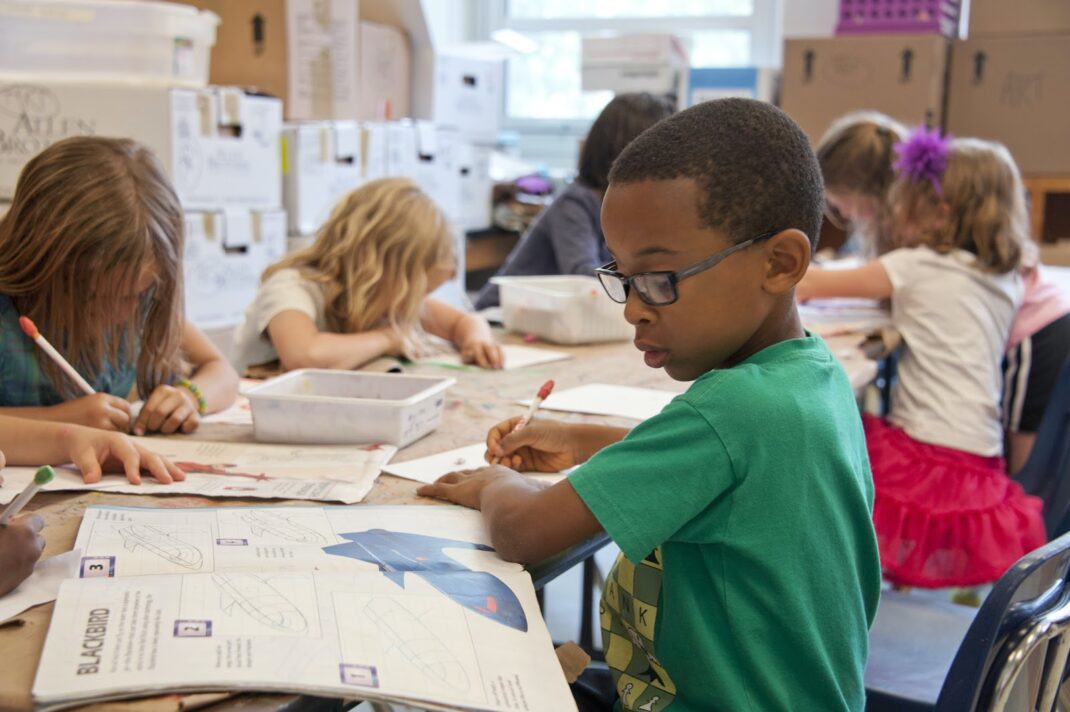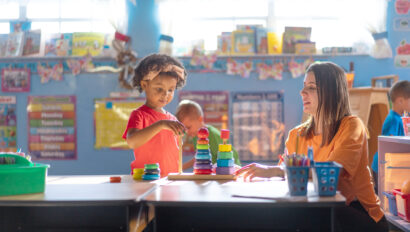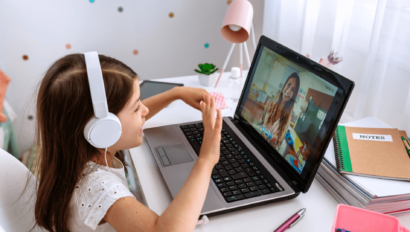Prepare for Back-to-School: Your Ultimate Guide to Prepare for Preschool

Ready, Set, Start! Your Ultimate Guide to Prepare for Back-to-School
Starting school is a major milestone in your child’s life. It comes with a mix of emotions for both you and your little one. To make the transition as smooth as possible, preparation is key. Use this guide to help you prepare for school and help your child feel excited about this next stage of life.
Emotional Preparation
Of course, you need all the fun supplies to prepare for preschool. But keep in mind that a big part of preschool preparation is emotional readiness. Talk with your child about what preschool is AND what they can expect. Show preschool as a fun and exciting time to learn, play, and make new friends. Building excitement will help alleviate any anxiety they might feel about their new beginning.
Consider reading books to help your child develop a positive outlook. Here are some preschool preparation book suggestions:
- The Night Before Preschool by Natasha Wing
- Preschool, Here I Come by D.J. Steinberg
- Llama Llama Misses Mama by Anna Dewdney
- Tomorrow I’ll Be Brave by Jessica Hische
Start with helping your child get excited and the rest of your back-to-school preparation will be a breeze.
Physical Preparation
Another important step to prepare for preschool is teaching your child some independent skills. Take a few weeks before the start of school to establish a strong routine. Practice skills such as getting dressed by themselves, washing their hands, and using the restroom independently. Create a bedtime routine to help build a consistent sleep pattern. Building independent skills will help your child feel confident and self-sufficient.
Preschool checklist
Check with your school location for specific items requested by each class. The following are the typical non-negotiables for starting school.
Backpack
Choose a backpack that’s the right size for your child. It should be lightweight, comfortable, and easy for them to carry. Some centers request full-size backpacks while others prefer smaller backpacks that are easier for littles to carry. Check with your center to see if they have a preference. Look for backpack features like padded shoulder straps, multiple compartments, a water bottle holder, and durable material. The material should be easy to clean, machine-washable, and stand up to daily use. You don’t want one that’ll come apart after a few months. Last but not least, find one that your child will love! Backpacks are a great way to help your little one get excited about school. Look for one with their favorite characters, colors, fun designs, or anything they love. Get them involved with the selection and they won’t be able to wait to use it.
Lunchbox
Just like a backpack, a lunchbox should be an exciting way to prepare for preschool. You can go with a backpack-lunchbox combo with matching patterns to help your child recognize which one is theirs. Or choose something totally different that shows their unique style. Regardless of the style, opt for a lunchbox with an antibacterial liner to keep food safe. Look for durable material that can be washed right alongside the backpack. Inside, bento-style trays or food-prep containers help keep food organized. Choose containers that are easy to clean and don’t spread germs. It’s also best to avoid any type of glass container since it’ll be used by little hands.
Water bottle
Little schoolers play hard all day long so a water bottle is a must. Choose a water bottle that’s the appropriate size – avoid ones that are too big and difficult to use. Go with a spill-proof top to avoid any wet clothes or leaks. Also, pay attention to the top design. Find one that your child can open and close easily. A simple pop-open and snap-shut design will be best; no need for screwing or capping.Don’t forget about durability. Cheap plastic bottles will likely crack after a few drops. Choose a bottle made of thick plastic, covered in rubber, or a stainless-steel design to withstand daily wear and tear.
Nap mat
After playing hard, you want your preschooler to have a comfortable spot to rest. Look for a durable sleeping pad that can be around for the long haul. Look for a mat that’s comfortable, foldable, and easy to clean. It’s common for kids to be in charge of their nap mat, so find one that your child can manipulate easily. Some come prepared with an attached blanket and pillow, making naptime preparation a breeze. Be sure to check with your center before buying a nap mat. Many centers provide raised cots or cushions for the students, and you may not need a nap mat.
Blanket
Bringing a blanket from home is an easy way to add a little daily comfort. Let your child choose which blanket to use during nap time. To make nap time as smooth as possible, bring a blanket that is the right size for your child – avoid tiny baby blankets and oversized blankets that can get tangled. It should be a blanket they can spread out on their own to cover themselves. Don’t send any type of sleeping bag or blanket they need to get inside. This is a major safety concern if there were an emergency and the students needed to get up quickly. Along with a blanket, many centers will allow you to send a small pillow and stuffed animal for resting time. Check with your center for their policies and help your little one feel as comfortable as possible.
Clothes and shoes
Choosing clothes is a big part of preparing for back-to-school. Whether you’re already stocked up or hitting the mall for back-to-school shopping, keep these tips in mind:
- Little schoolers are messy. Send them in clothes that will be easy to clean, and you won’t be upset if they get ruined.
- Keep in mind that your little one will be going to the restroom alone. Avoid pants with buttons and snaps. Simple elastic or a drawstring will be the quickest, easiest way to get undressed.
- Dress for the weather. The students will probably spend a big portion of their day outside, so plan accordingly.
- Send a light jacket for your child to keep in their backpack in case they get cold during the day.
- Tennis shoes are best. If you choose anything other than tennis shoes, make sure they are close-toed. Close-toed shoes are the safest option for running, whether it’s inside a gym or outside on the playground.
- Even if your child can tie, shoes with Velcro straps or a slip-on design make daily use much easier. Once they’re on, they’re on. No one has to bother with tying and untying shoestrings all day.
- Keep their extra clothes updated. You will need to send an extra set (or sets) of clothes in case there are any accidents or spills. Make sure the extra clothes fit properly and reflect the current season.
Keep it simple and comfortable so everyone stays happy. A final tip: *LABEL EVERYTHING* From clothes to blankets to supplies, make sure you label them before sending them to school. In a room full of children, it’s likely that two or more will bring the same items. Help the teachers keep track of what belongs to each child by adding their name. As you and your child prepare for preschool, remember to keep it fun. Starting something new is a transition for both of you. Remain supportive, positive, and encouraging. The better prepared you are, the easier it will be to start this new journey. Above all else, enjoy this time with your little one.
Looking for the perfect preschool or daycare home? We invite you to schedule a visit to Laugh and Learn to see firsthand how we create a nurturing and stimulating environment. Contact us today to arrange a tour. We’ll help ease the transition and make this an exciting journey for all.


